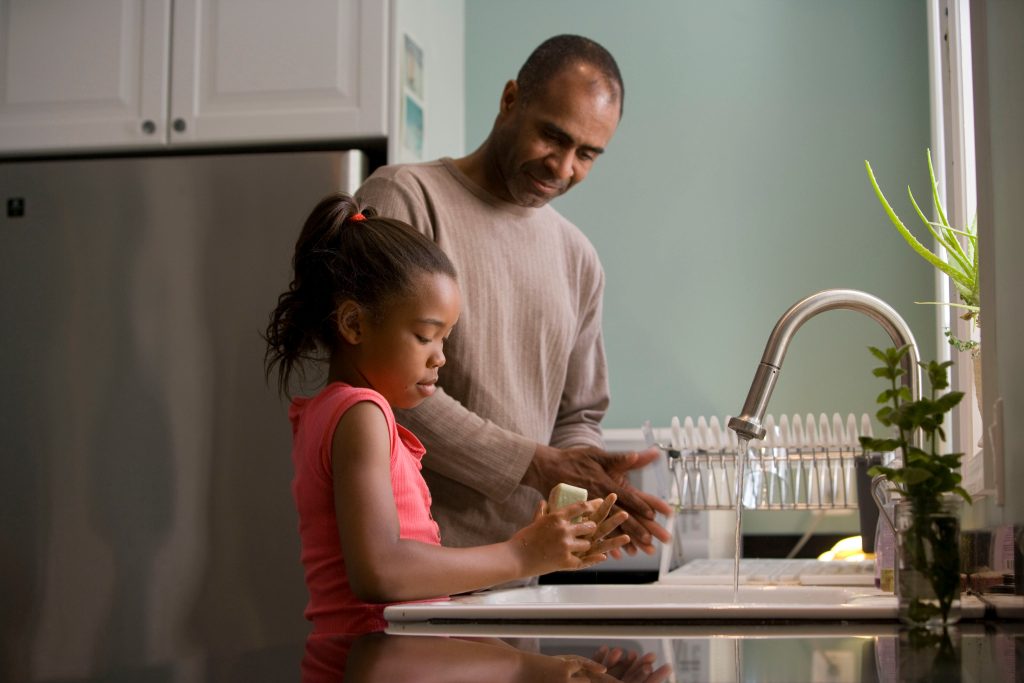
In the realm of family dynamics, the role of fathers has often been overshadowed by the traditional notion that their primary duty is to provide financial support. This limited perspective underestimates the value that fathers bring beyond their wallets, leaving mothers to bear the weight of full-time jobs and childcare responsibilities alone. This skewed expectation not only overburdens mothers but also sends damaging messages to our children about gender roles and relationships. It's time to shed light on the critical role of fathers in child-rearing and household responsibilities. To challenge the outdated belief that active paternal involvement compromises masculinity.
The Evolution of Fatherhood in Family Dynamics
As society's norms and expectations have progressed, so too has the perception and reality of fatherhood within family dynamics. The traditional image of the father as merely a provider has transformed, giving way to a more comprehensive view that encompasses emotional, mental, and physical involvement. This transformation acknowledges fathers as crucial figures for emotional support, guidance, discipline, and active participation in day-to-day childcare. The evolution is partly driven by the changing landscape of the workforce, with more mothers entering full-time employment, thereby necessitating a shift in domestic roles. Additionally, a growing body of research underscores the positive impact of father engagement on child development, challenging old paradigms and encouraging a new generation of dads to embrace a hands-on approach to parenting.
This shift away from rigid gender roles towards a more egalitarian model not only enriches the father-child relationship but also contributes to a more balanced distribution of household and parenting responsibilities. As we continue to navigate these changing dynamics, it becomes clear that the modern father’s role is as much about emotional nurture and participation in the home as it is about providing financial support, marking a significant step towards a more inclusive understanding of fatherhood in today's world.
Unpacking the Financial Provider Stereotype

The stereotype that fathers primarily serve as financial providers has deep roots, yet it confines their role to a singular dimension that overlooks their broader impact on family life. This archetype not only restricts fathers' involvement in nurturing and caregiving but also devalues their potential to contribute in emotionally supportive ways.
Moving beyond this stereotype allows fathers to explore a full spectrum of parenting, from sharing in the joys and challenges of day-to-day child-rearing to being an active participant in household decisions and chores.
Embracing a more holistic view of fatherhood enables dads to forge stronger bonds with their children, offering them a model of gender inclusivity and emotional intelligence. Additionally, this shift can alleviate some of the pressures traditionally placed on mothers, promoting a more equitable sharing of parental duties. This reevaluation of the father's role challenges societal norms and encourages a family dynamic where both parents' contributions are acknowledged and valued, not simply for their economic worth but for their integral part in fostering a nurturing, supportive, and resilient family unit.
The Impact on Mothers and the Family Unit

When fathers actively engage in parenting and household responsibilities, the impact on mothers and the overall family unit is profound. Mothers, traditionally burdened with the lion's share of caregiving and domestic tasks, experience a significant alleviation of stress and an increased sense of partnership. This shared responsibility fosters a healthier work-life balance for both parents, reducing maternal burnout and enhancing family well-being. Moreover, it sets a powerful example for children, who learn the importance of equality, teamwork, and mutual support within the family.
By witnessing their fathers' active participation, children grow up with a more balanced view of gender roles, understanding that caregiving and emotional support are not solely women's responsibilities. This balanced approach to parenting leads to happier, more harmonious home environments, where all members feel valued and supported. The ripple effect of such dynamics encourages a culture of respect and collaboration, essential qualities for healthy, functional relationships both within and outside the family unit.
Breaking Down Gender Roles and Relationships
In today's society, the persistence of conventional gender roles continues to confine parents to outdated expectations that do not reflect the complexities of modern family life. By holding onto the belief that fathers should be the primary earners and mothers the chief caregivers, we limit the potential for a richer, more balanced familial interaction. This adherence to traditional roles not only hampers the emotional development and involvement of fathers but also unjustly burdens mothers with a disproportionate share of domestic and caregiving responsibilities. To foster a family dynamic that thrives on mutual respect, understanding, and shared duties, it is imperative to move beyond these archaic constructs.
Encouraging a departure from these norms enables families to model a dynamic of equality and shared responsibility, offering children a broader, more inclusive view of what it means to contribute to family life. In doing so, we not only challenge the status quo but also empower each family member to engage fully and authentically in their roles, free from the constraints of societal expectations. This shift towards a more egalitarian approach in parenting and household responsibilities is crucial for cultivating an environment where both parents can flourish in their individual and collective roles, demonstrating to children the value of collaboration, respect, and flexibility in family relationships and beyond.
The Myth of Masculinity and Parental Involvement

The prevailing notion that active fatherhood detracts from a man's masculinity is a significant impediment to balanced family involvement. This myth, deeply ingrained in societal norms, suggests that emotional availability and caregiving are at odds with traditional male characteristics. However, embracing these roles actually demonstrates profound strength and self-assurance. It is crucial to redefine masculinity to include the tenderness, empathy, and involvement in day-to-day family life that contribute to the holistic development of children. By challenging these outdated perceptions, fathers can reclaim their rightful place in the emotional and physical landscape of parenting.
This transformation not only benefits their relationships with their children but also models for future generations a more inclusive definition of what it means to be a man. Encouraging men to dismantle these barriers and engage fully in all aspects of parenting supports a family dynamic rich with diversity in care and interaction. The journey toward redefining masculinity to encompass the full spectrum of parental involvement is a vital step in fostering families where every member can thrive in an atmosphere of mutual respect and shared responsibilities.
The Benefits of Co-Parenting
Embracing co-parenting leads to a wealth of advantages that extend across the entire family unit. Children thrive under the care of both parents, gaining access to varied life lessons, emotional support, and a deeper sense of security. This dual involvement helps in the development of well-rounded individuals by exposing them to diverse problem-solving approaches, coping mechanisms, and nurturing styles. For parents, the shared responsibility lightens the individual burden, creating space for personal growth and stronger marital relationships.
The cooperative effort in parenting responsibilities fosters an environment of mutual respect and understanding, significantly reducing the potential for conflict and resentment. Such a dynamic promotes effective communication and teamwork, laying a solid foundation for children to learn valuable interpersonal skills. Furthermore, engaging in co-parenting allows for a more balanced lifestyle, where both parents can pursue their career ambitions while ensuring their family life remains a top priority. This approach not only enriches the parental experience but also models a healthy, collaborative, and supportive relationship for children, setting a precedent for their future relationships and parenting styles.
A Call to Action for Men and Women

The moment has arrived for a significant cultural shift in our understanding and appreciation of fatherhood within the context of family life. Both men and women must advocate for a more inclusive approach to parenting, highlighting the indispensable role fathers play in the emotional and developmental growth of their children. This endeavor requires a collective effort to dismantle the deep-seated stereotypes that limit paternal involvement to financial contributions. We need to foster an environment where fathers feel empowered and expected to engage deeply in the parenting process, from the tender moments of infancy to the complex challenges of adolescence.
Promoting the concept of co-parenting as a societal norm rather than an exception is essential. This includes encouraging workplaces to recognize and support the parenting roles of both fathers and mothers, thereby facilitating a more balanced distribution of domestic and professional responsibilities. Additionally, educational initiatives aimed at new and expecting parents can provide the tools and confidence needed for fathers to embrace their roles fully.
By uniting in this cause, we stand to benefit the fabric of our families, enhancing the well-being of all members and providing our children with a model of equality, cooperation, and respect. It’s about cultivating a generation that values emotional intelligence and mutual support, setting the stage for a future where the nurturing influence of both parents is not just welcomed, but expected. Let's commit to championing this change, for the betterment of our families and society at large.